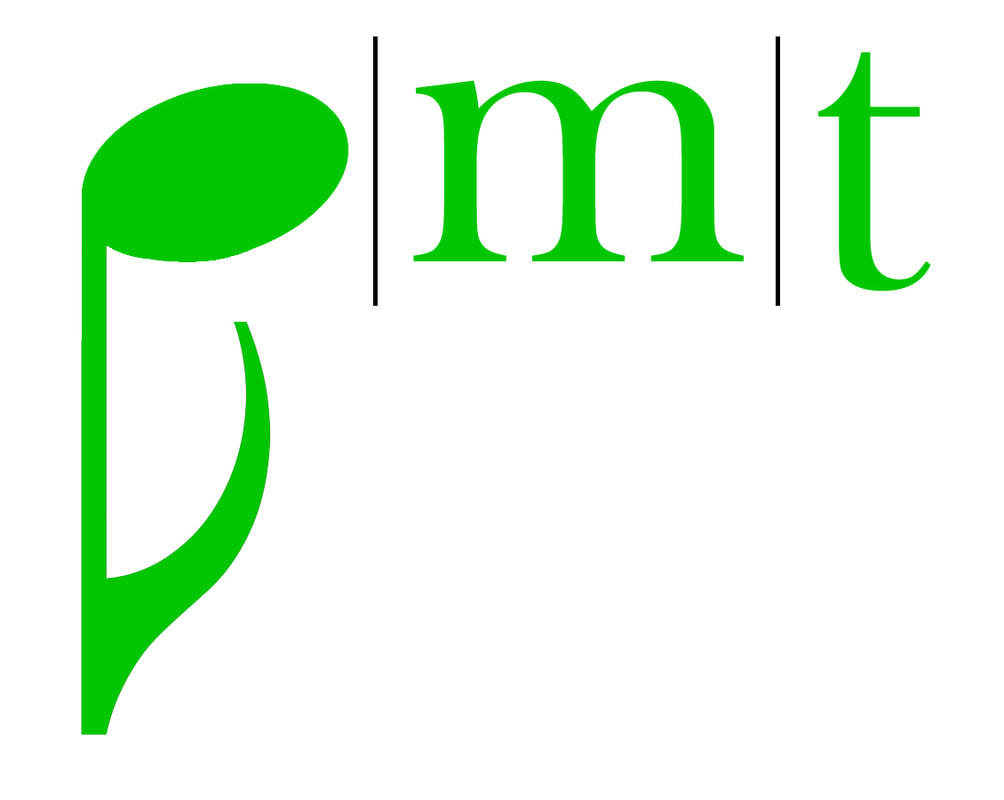|
Second post in a series following Executive Director, Gretchen Benner's attendance of the York County Non-Profit Management Certificate Program. Collaboration, partnerships and alliances will help Piedmont Music Therapy to further its mission. Gratefully, we have leaned into community-based partnerships with area organizations and agencies over the past decade. Leaning more into managing those partnerships and sharing takeaways and metrics will assist to spotlight that work. As an Executive Director, my role is to manage the organization which includes the personnel and procedures to connect, play and grow with individuals of all ages and abilities through music therapy treatment, lessons and education within the community of greater Charlotte. In exploring the stages of an organization's development from Mr. Charles Weathers of The Weathers Group, PMT aligns with the initial phase of forming. Learning how to improve sustainable service delivery was affirming. We explored how values, roles, expectations and responsibilities connect. PMT looks forward to the opportunity to work with more individuals and intentionally connect with them to improve their health & wellness in the Carolinas.
0 Comments
 Thanks for participating this morning. Reminder to please fill out the course evaluation form during the conference.
We hope this resource page will be helpful for your school year! Let us know if you have further questions or feedback!
PMT's Executive Director joined the cohort for the Non-Profit Management Certificate Program. This blog post is the first of nine with reflections on attending the monthly training through the York County Regional Chamber of Commerce. The first class I attended was inspiring! There were over 40 individuals attending from local organizations across the Palmetto State. It was wonderful to learn more about offerings for community members of varying ages and needs! This picture on the grounds of the training site was meaningful. The evolution of PMT's 10 history is amazing. PMT started as a "pop-up" mobile service provider that was a "for-profit". Today, PMT is a team of 5 employees, one intern, and many volunteers. PMT is still conveniently mobile, but also has two stationary locations. Staff overcame much education and advocacy within greater Charlotte in order to methodically introduce ourselves as a private practice and inclusive studio. This leadership training is appealing as PMT is new to the non-for profit sector. One of PMT's main learning objectives is to improve communication. Specifically, we want to improve communication with stakeholders in order that we can best convey the impact of music therapy in our community. Though the nine-month course is not a brief journey, it is a necessary training that is conveniently located in our backyard. Two roads diverged in a wood and I - I took the one less traveled by, and that has made all the difference. - Robert Frost It can feel daunting as PMT has shifted to a non-profit structure. However, this certificate program will inform PMT of resources and connections to smooth this transition. The countless clients, caregivers and organizations that we have served, fuels this long journey. Potential clients whom we could share services with in the future through donation or grant funded opportunities is also fueling our energies! Thank you for supporting PMT's growth and evolution. If you have questions or ideas on our new path, please share in the comment section below: Written by: Gretchen Benner
By: Nick Paredes, MT Intern Music is an intrinsic part of being a teenager. From discovering new music to singing along to familiar songs, listening to, singing, and playing music can help someone open up and express themselves. Especially when words might not be enough, music can help relate and connect. Music Therapy Music therapy with teenagers can look like all sorts of things; it all depends on the goals and interests of whoever is present, whether in a group or individually. Below are some examples of music therapy experiences a teen might participate in. Songwriting With songwriting, a person can have control over the words and sounds of a song while expressing their feelings or processing life experiences. They might choose to rewrite part or all of a song they already know, or start from scratch. The music therapist might help formulate the lyrics, give examples of melodies and harmonies, and be a sounding board for ideas. Music Listening Music listening can allow the opportunity to dive deeper into a song’s meaning and its relatability. When words are too difficult or feelings can’t be verbalized, a song can communicate what a person might be experiencing. Music listening could also include relaxation to music, such as progressive muscle relaxation or imagery-based relaxation experiences to help with anxiety and other stressors. Improvisation Improvisation in music therapy is when the teenager(s) and the therapist create music together in the moment to express and explore feelings musically; this could also look like one teen taking a turn expressing how they feel on one instrument, while the rest of the group listens and supports them with other instruments. Though the improvisation might be discussed afterwards, improvisation allows for a musical “conversation” to take place, and challenges everyone present to find different ways to communicate and connect. Improvisation could be instrumental (piano, drums, xylophone, body percussion etc.) or vocal, and often is a mix; it all depends on the teens’ preferences and the predetermined goal of the improvisation. Music Making Music making encompasses the rest of what might occur within a music therapy session with teens: singing, playing instruments, and even performing for an audience. This might be playing a song together in a group or singing a favorite song along to a recording. Learning to play new instruments within a therapeutic setting could also give a teen new ways to express themselves and connect with others. Singing itself requires deep breathing, and has been shown to help improve mental health and decrease chronic pain (Bradt et al., 2016). Creating music in the moment with a teenager is the purest way of working towards understanding, acceptance, and development. Katrin McFerran, 2010 The flexibility that music allows gives the opportunity to a music therapist and teenager to explore whatever they might be needing in the moment. The music therapist, teenager, and the music itself can foster understanding, acceptance, and development at a time when music is already so intuitively a core part of self-understanding. Sources Bradt, J., Norris, M., Shim., M., Gracely, E. J., & Gerrity, P. (2016). Vocal music therapy for chronic pain management in inner-city African Americans: A mixed methods feasibility study. Journal of Music Therapy, 53(2), 178-206. https://doi.org/10.1093/jmt/thw004 McFerran, Katrina. (2010). Adolescents, music and music therapy. Jessica Kingsley Publishers. Source linked here Written by: Nick P., Music Therapy Intern  Every part of a music therapy session is planned with the growth and development of the individual or group in mind, even the “hello” or introduction song. For most younger populations, calling it the “hello song” is perfectly acceptable, as it reinforces social cues and expectations when interacting with others. But when working with most adolescents and adults, calling it the introduction to music therapy or not even naming it is more appropriate. Whether or not it has its own title, most people benefit from having a musical transition from outside life into the music session. Hello songs with younger children have many benefits, including reinforcing the greeting of others, improving their understanding of sequences and the order of activities, and serving as a way to engage and prepare them for the session. The “Hello Song,” by The KIboomers, for example, can be used as it is or modified based on the group or individual to provide the above benefits as well as offer a way for children to begin to recognize and name emotions and feelings and possibly relate to other peers and how they might feel. For groups of adolescents, giving them the opportunity to share songs that were or are meaningful to them or symbolize how their time has been since the last session can serve several purposes. First of all, it can give the music therapist some insight into their inner world without having to dialogue, improve the relationship between individual and therapist, give the rest of the group a way to possibly relate and connect with the individual who shared, as well as provide space for someone to communicate their feelings beyond just verbalizing them. For individual sessions with adolescents, song-sharing can be beneficial as well, and so can a short relaxation experience, or simply playing instrumental music from a speaker as they walk in to provide a simple but effective transition into the music therapy space. For adults and older adults, especially if working on memory recall, choosing a song that’s familiar to everyone in the group and singing it every week can be a great way to signify the transition into the music therapy space. Though for some groups of adults, a verbal transition or simple musical transition into the space might be more beneficial, such as a relaxation experience or verbal check-in. Currently for a group of older adults, my internship supervisor and I are using the song “It’s a Good Day,” by Peggy Lee to open up each session. Once the song is over, the group is asked “What makes today a good day?” This gives the group a chance to share something personal with the group, and gives opportunities for connection and relation. These are some of the ways I have incorporated opening experiences in sessions, mostly during my practicum experience while studying music therapy. While a hello song or introduction song may not always be appropriate, they can be a useful way to transition into a session in a routine and beneficial way. Will the real PMT please stand up, please stand up, please stand up... 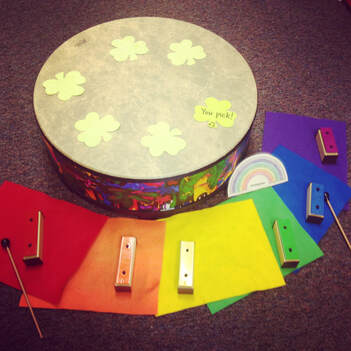 Image description: A gathering drum with four leaf clovers and a rainbow array of instruments and felt cloths nearby. Image description: A gathering drum with four leaf clovers and a rainbow array of instruments and felt cloths nearby. ~ inspired by Eminem's The Real Slim Shady (2000) Piedmont Music Therapy (PMT) chose to change classification from a Limited Liability Corporation to a not-for-profit organization (NFPO) earlier this year. This structural difference will now provide funding options to clients who could not previously afford "out of network" options. Grants designated only for NFPOs are one such funding option that will be newly accessible under this designation. Although this means many additional hours of PMT staff writing and applying for additional grants, PMT believes this change will grow its mission! Over an estimated 125 hours of work was placed into completing necessary NFPO documentation. PMT wanted to maintain its history of inclusive service to greater Charlotte (CLT). When energy was running low during these months of paperwork, PMT gained inspiration modeled by the perseverance and self-advocacy of clients, families and organizations with whom we have served! PMT received the 501(c)(3) categorization as a tax-exempt organization effective March 1, 2023. This structural change will yield a sustainable way for clients to receive highly qualified services, AND fair wages for clinicians earning their livelihoods. Maintaining the name "PMT" allowed the continued use of established email accounts, website branding, employee uniforms, etc. The seven member Board of Directors was formed spring 2023. These volunteers aspire to promote increased access to music therapy. PMT is grateful these individuals are sharing their expertise and time! As we officially embark with the tax-exempt status, we ask for your ideas, feedback and vision approaching the reformed identity. The private practice once solely geared towards mobile service delivery has evolved to provide more appointments for individual clients of all ages visiting PMT's location in South CLT. Our organization hopes to improve its reach within our community. Tailored offerings for veterans, individuals with Parkinson's Disease, Traumatic Brain Injury, and post-stroke will be a new focus. We also hope to improve group opportunities for children, youth and young adults of diverse abilities. Please consider PMT with your yearly tax-deductible contributions. Thanks for encouraging our formation as... the real PMT please stands up, stands on up... Written by: Gretchen Benner, Exec. Director
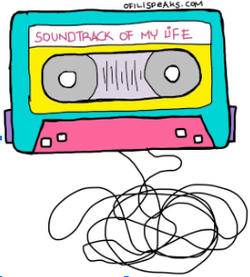 Written by: Molli Smith, Music Therapy Intern In wrapping up my final two weeks of internship here at PMT, it’s been nice to look back on this journey and think of how far I have come. I’ve learned so much in the past 6 months and I feel more prepared to enter the professional world as a board-certified music therapist. Through my reflection, I figured compiling a list of songs was a fun way to represent each month of my internship! I’ve also highlighted some of the lyrics that stick out to me the most. Change of Seasons - From graduating college, to finally starting internship, month one was a big period of change! There was a lot to learn and adjust to - especially with a larger clinical caseload. I had to remind myself to not worry too much about what was to come and simply focus on taking things step by step.
Where the Adventure Begins - As I started to gain more clinical experience and refresh all the skills I had learned in college, I sort of rediscovered my passion for music therapy and was reminded of why I chose this career path in the first place. It was exciting to be on this new adventure.
Keep Your Head Up - While I began taking on more responsibilities, my days were growing busier. At times it was a lot to keep track of, but I reminded myself that I could do it and that my hard work will pay off.
Try Everything - At month four, I was feeling more confident in my abilities and was just ready to try anything! It’s also important to learn how to keep going and make the best of the situation if things don’t go as planned. Having the opportunity to try new things with support from my clinical supervisors truly helped my growth as a music therapy intern.
Brand New - Nearing the end of my journey, I was worrying less and enjoying each experience I had. Although I still got a bit nervous before some sessions, I was beginning to feel a lot more at ease.
Thank You For The Music - Finally in month 6, I am so thankful for all of the experiences and music I have gotten to share with others. The best part has been seeing positive change in many of my clients and being able to make connections with them through song. It is something I shall never forget.
I hope you have enjoyed this collection of songs. They each tell a little story of my time here at PMT. What are some songs that relate to your own experiences in life? 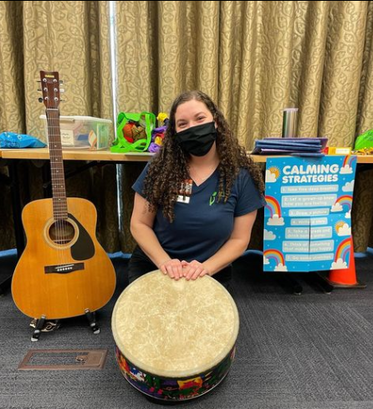 Ms. Molli is pictured, masked and smiling, surrounded by instruments for the Culture Blocks Songs With Friends Program at the Steele Creek Branch Library. ✨Songs With Friends is sponsored by Culture Blocks - a community partnership funded by Mecklenburg County. Ms. Molli is pictured, masked and smiling, surrounded by instruments for the Culture Blocks Songs With Friends Program at the Steele Creek Branch Library. ✨Songs With Friends is sponsored by Culture Blocks - a community partnership funded by Mecklenburg County. Written by: Molli Smith, MT Intern As I am heading into month 5 of my internship, I wanted to reflect on my experience at PMT and the personal growth I have seen within myself. In the beginning, I was extremely nervous and did not have a lot of confidence in my skills. Finding an internship was a tough and lengthy process for me, and after receiving multiple “no’s,” it was becoming harder to envision myself reaching this point. It took some adjustment to get back in the groove of doing clinical work and trusting in the knowledge and skills that I had. Among the required American Music Therapy Association (AMTA) Professional Competencies that I have been working on, I have seen substantial growth in the following: 9.1 Recognize the impact of one's own feelings, attitudes, and actions on the client and the therapy process. When I first started co-leading some sessions, I would spend a lot of time practicing and worrying about how things were going to go. While this allowed me to be prepared for the interventions I was leading, I feel as though it hindered my ability to fully connect with the clients. I was so focused on my own readiness and emotions that I was not as present within the sessions. Now, however, I feel more confident in my skills and instincts, which allow me to be flexible and adapt based on client needs and responses. 17.8 Demonstrate critical self-awareness of strengths and weaknesses. In the early months of my internship, I would struggle to think of things I did well in sessions. I would immediately point out what I wished I had done differently instead. Although this critical self-awareness allowed me to develop within those areas of need, it was also important for me to learn how to acknowledge and praise areas I was succeeding in. This definitely took some practice, but as I have grown more confident in my skills, I am able to evaluate myself in a more objective way. While there is still more to learn and growth to experience, I am proud of myself for how far I have come in such a short time. I look forward to completing my internship and truly starting my career as a music therapist. I am excited to see how I continue to evolve on both a professional and personal level. Interested in learning more about the educational journey of music therapy internships? Check out the AMTA Standards of Clinical Practice available online.
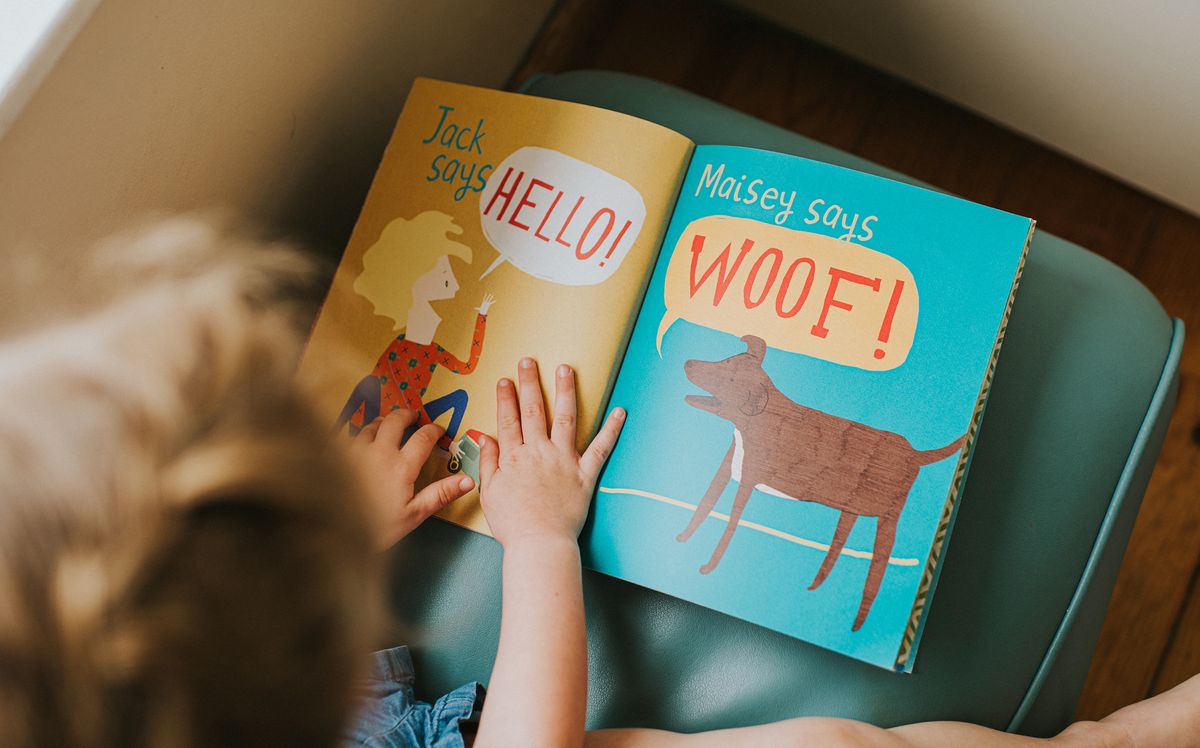 Written by: Molli Smith, MT Intern A couple of weeks ago, I was able to attend my second SER-AMTA Conference - this time in Chattanooga, Tennessee. It was a great time to catch up with friends and professors, and to meet some new faces. I enjoyed going to the concurrent sessions, especially due to the wide range of topics. One of my favorite sessions was about how to incorporate children’s literature in music therapy, presented by Kirby Carruth, MMT, LPMT, MT-BC, Rachel Coon-Arnott, MMT, LPMT, MT-BC, and Amber Weldon-Stephens, EdS, LPMT, MT-BC. The majority of this presentation consisted of hands-on intervention examples that we could implement in our own practice, which was a fun way to end a long day of concurrent sessions. I really enjoyed learning about different ways to make children’s books more interactive, and wanted to share some of my takeaways. Why choose singable books when working with children?
Ways to make the books interactive:
An example of a specific application that they included in the concurrent session was with the book Pete The Cat: Rocking in My School Shoes by Eric Litwin. Materials needed for this include: book or powerpoint of book pages, visuals of school settings, guitar, and tambourines. Begin the book by singing the chorus “I’m rocking in my school shoes,” using a blues progression and upbeat strumming pattern. Have the students play their tambourines during the recurring chorus line, and place them in their lap or on the floor for other parts of the book. When Pete moves to a different space within the school (such as library, cafeteria, playground, etc.), give students the opportunity to match the correct visual with the location from a field of choices. Here is a link to an online resource where you can virtually borrow books for free. What is your favorite book you have incorporated in music therapy sessions? |
PMTProviding music therapy services for early childhood to older adults, music instruction and enrichment plus continuing music therapy education in Greater Charlotte Area of the Carolinas. Archives
May 2024
Categories
All
|
||||||||||||
Piedmont Music Therapy is a 501(c)(3) status organization.
Piedmont Music Therapy accepts donations via venmo @piedmontmusictherapy or any amount through QuickBooks. Contact us to arrange an electronic pledge!
Main Location |
|
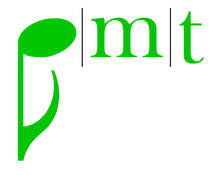

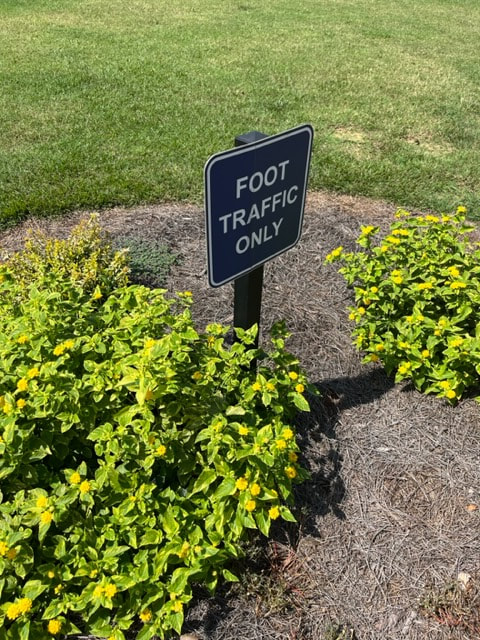
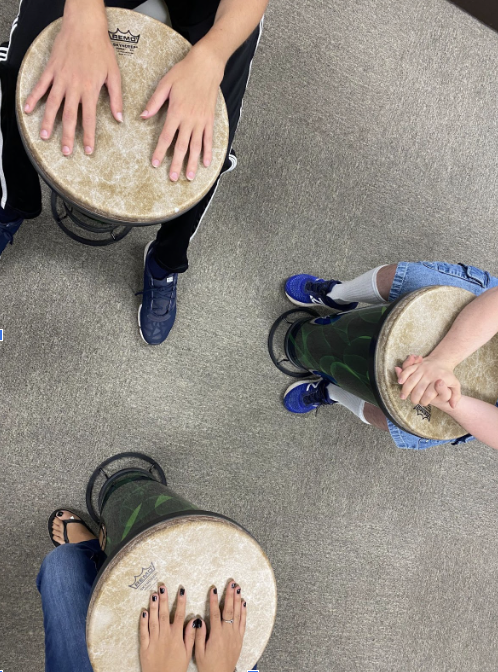

 RSS Feed
RSS Feed
